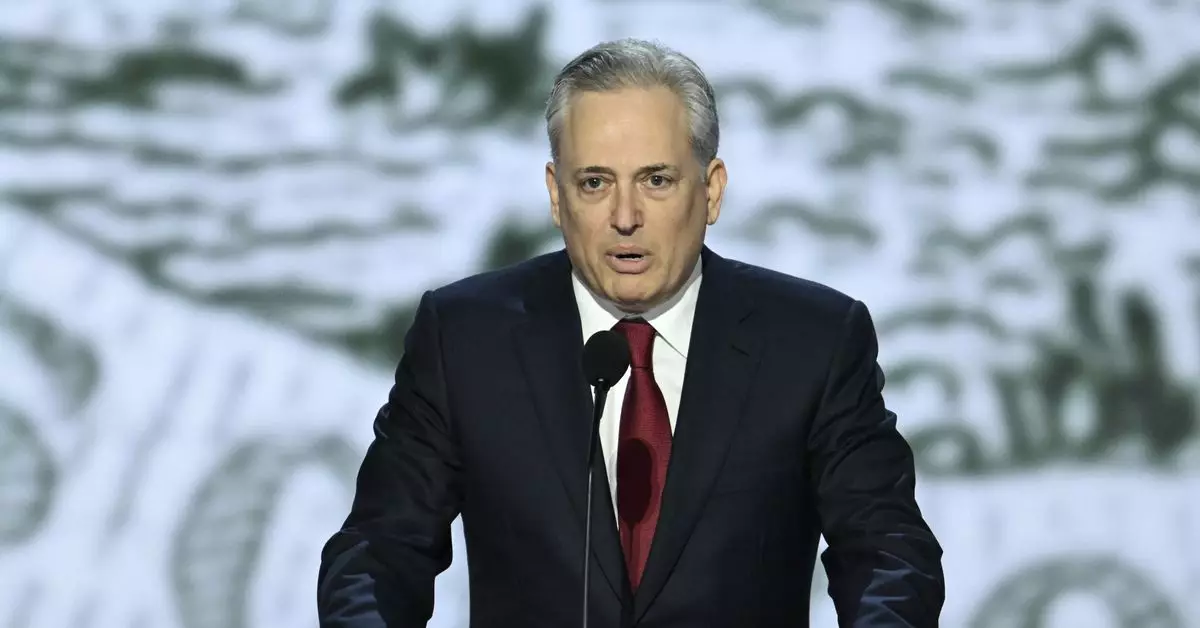The appointment of David Sacks as the “White House A.I. & Crypto Czar” marks a significant pivot in the political landscape of the United States, especially under the incoming Trump administration. With his extensive background in technology, particularly through his notable affiliations with PayPal and his own venture capital firm, Craft Ventures, Sacks’ designation suggests a strong inclination towards integrating innovative technologies into government policy. This move seems to signal the administration’s intent to navigate the complex waters of artificial intelligence and cryptocurrency—two realms that hold vast potential for economic growth and geopolitical strength.
The relationship between Sacks and Trump is not purely transactional; it embodies a blend of mutual support and interconnected interests. Sacks is not just a financier; he is embedded within the fabric of Silicon Valley’s elite, having previously hosted a lavish $300,000-a-ticket fundraising dinner for Trump’s campaign. Furthermore, his collaboration with fellow tech leader Elon Musk—who has been tapped to bring efficiency to government operations—indicates a strategy to leverage influential figures from the tech industry in the political arena. This tight-knit circle not only underscores the importance of tech-savviness in contemporary governance but also exhibits a trend where political powerhouses increasingly seek insight and validation from technological innovators.
Sacks’ responsibilities as the AI and crypto Czar blend lofty aspirations with considerable challenges. He is set to guide the administration’s policies in two of the most dynamic sectors where regulations are still evolving. His primary focus will be on establishing a legal framework that provides clarity and reassurance to the cryptocurrency industry, which has long been plagued by uncertainty. Moreover, his commitment to safeguarding free speech online and combating Big Tech’s perceived biases aligns with broader calls from various political factions advocating for a balance between innovation and individual liberties.
However, this role is not without its pitfalls. As Sacks attempts to navigate the intricate dynamics between fostering innovation and ensuring responsible governance, he may face pushback from both regulatory bodies and the tech industry itself. Striking the right balance will be crucial in avoiding a scenario where regulatory overreach stifles innovation or where too lenient policies expose users to risks.
Sacks’ appointment has garnered quick praise from industry leaders, including Sam Altman of OpenAI, suggesting that there are high expectations for him to advocate for growth within these sectors. His tenure will likely be characterized by an ongoing dialogue between government bodies and technology companies, seeking to adapt to rapid advancements while maintaining public safety and ethical standards. The growing interest in AI and cryptocurrencies—evident from investor movements and public discourse—places Sacks at the helm of a potentially transformative chapter in U.S. economic development.
As David Sacks steps into this critical role, the implications of his decisions will resonate far beyond the confines of the Oval Office. His ability to foster innovation while maintaining a commitment to ethical standards could redefine the relationship between the government and technology in the digital age. With potential challenges ahead, all eyes will be on Sacks as he balances the intricate dance of policy-making in an increasingly complex world of technology.


Leave a Reply